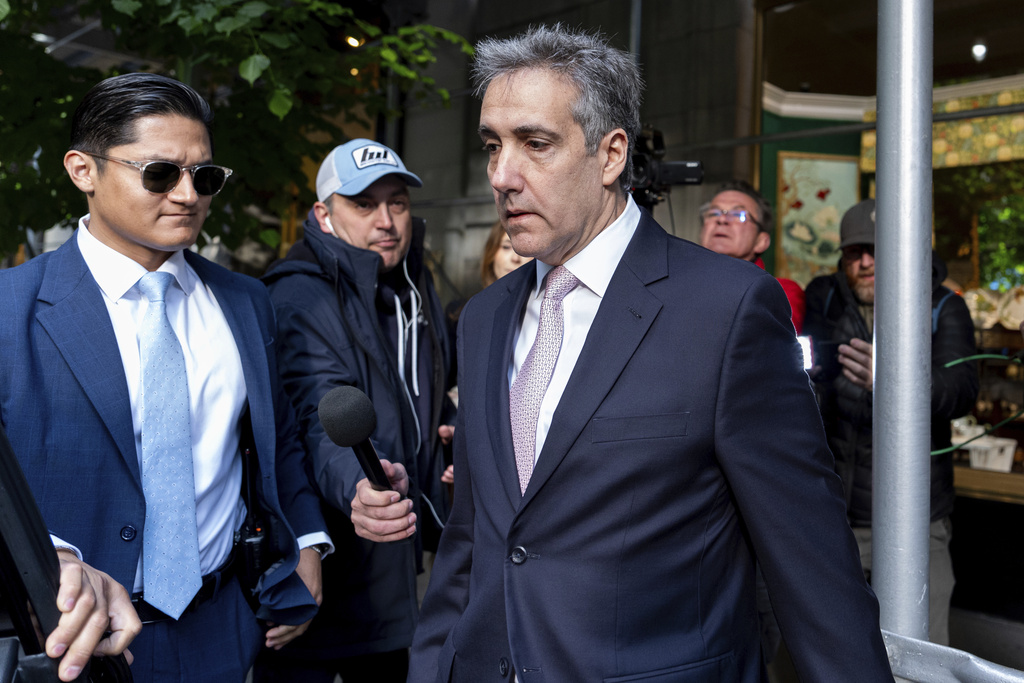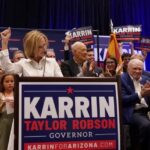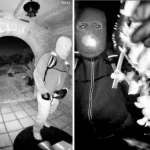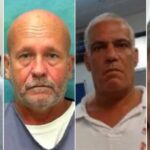
The New York hush money trial against Donald Trump is entering day 18 of the historic first criminal proceedings against a former president, but legal experts say prosecutors have yet to identify the “other crime” needed to upgrade misdemeanor charges to a felony conviction.
Trump’s former attorney and fixer Michael Cohen is set to take the witness stand again Thursday for his second day of cross-examination by the former president’s defense team. The trial has pushed forward at a steady pace and is ahead of schedule, yet prosecutors have left a glaring hole in their argument that Trump is guilty of 34 felony counts of business record falsifications in the first degree.

The problem prosecutors face is that they must first prove the falsification of business records, which is a misdemeanor, and then the felony “escalator,” or the claim that the records were falsified with the intent to conceal or aid in the commission of another offense, former federal prosecutor Katie Cherkasky told the Washington Examiner.
By the time the prosecution finished questioning Cohen on Tuesday morning, they had not clearly laid out what additional crime Trump was aiming to facilitate by allegedly falsifying records, though they appeared to rely heavily on Cohen’s decision to stop being loyal to Trump when he pleaded guilty to federal charges in 2018. Cohen’s plea was in relation to a $130,000 payment to porn star Stormy Daniels to hide her story of an alleged sexual encounter with Trump.
One potential object offense prosecutors say Trump could be culpable of is a violation of the Federal Election Campaign Act, the same federal campaign finance law Cohen pleaded guilty to violating.
But Cherkasky said she and many lawyers “don’t think that you can incorporate a federal offense that isn’t within the jurisdiction of the New York court as the escalating offense,” adding that doing so would turn into a bigger problem for an appellate court if the jury voted to convict Trump.
Manhattan District Attorney Alvin Bragg, an elected Democrat, brought the indictment against Trump in April 2023 with the help of a COVID-19-era law that allowed the state to extend its statute of limitations by a year. Without that change, prosecutors could not have brought the case against Trump because falsifying business records is a misdemeanor with a two-year statute of limitations.
Simply put, Bragg’s team is seeking to prove two underlying allegations against Trump: that the 11 checks he paid to Cohen in 2017 were misclassified as “legal expenses” in order to cover up hush money payments and that it was done for electoral reasons rather than merely to save Trump from personal embarrassment. The former president has denied Daniels’s allegations about the alleged affair and contends the lump $420,000 amount he paid Cohen was for legal work.
Prosecutor Joshua Steinglass has said the “primary” crime his office is seeking to use to prove a conspiracy is Section 17-152 under New York law, which is conspiracy to promote or prevent an election. However, Bragg did not charge Trump with any election-related offenses and has hinted there are three other “potential object offenses” that Trump may have committed, adding more confusion to the mix.
Another “potential problem” for the 12-member jury is their task to find “beyond a reasonable doubt” that the alleged falsification of business records was done to cover up another crime, according to former federal prosecutor David Sklansky.
“If I had to bet, I would say that the jury ultimately will be convinced that this was done to cover up another crime, but the theory that they have to follow in order to find that is a little convoluted, and I think that even for most lawyers who have been following the trial, it’s been a little difficult to figure out exactly what the DA’s theory is,” Sklansky said in a recent interview.
And if prosecutors want to rely on Cohen’s 2018 guilty plea to the campaign finance violation, then they must confront the fact that the Federal Election Commission dropped its investigation into whether Trump violated election law with the Daniels payment in May 2021. Additionally, the Justice Department under the Biden administration declined to charge Trump with any crimes related to the payment after investigating.
Cherkasky said the true description of the “other crime” prosecutors are trying to prove that Trump committed may not be revealed until presiding Judge Juan Merchan hands the jury instructions when the time comes for a verdict in the case, which could come as soon as the first week of June.
Moreover, Cherkasky said Bragg’s team will likely argue for “very specific instructions that make it easy to prove their case … and then the defense is going to have their chance to argue against it.”
CLICK HERE TO READ MORE FROM THE WASHINGTON EXAMINER
“The judge’s instructions are going to be very critical. That’s going to tell us all of the answers to these things in terms of how the judge is interpreting this,” Cherkasky said.
Trump attorney Todd Blanche said Tuesday he expects cross-examination of Cohen will continue from Thursday morning into the afternoon. The trial is taking a break on Friday, and the defense will begin presenting their case and witnesses on Monday.





